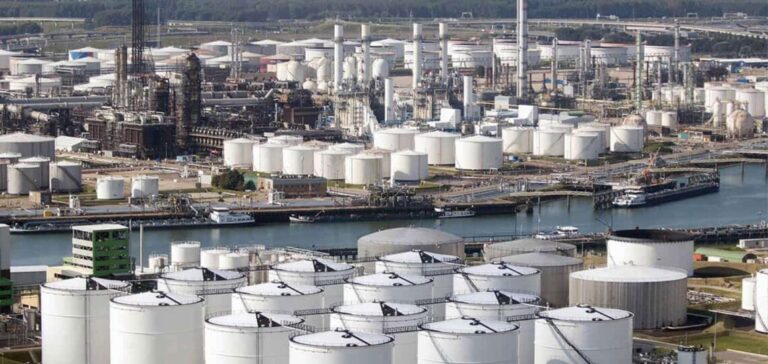Commercial crude oil reserves fell sharply in the United States last week to the lowest since November 2014, as refining activity is in full swing, according to figures released Wednesday by the U.S. Energy Information Agency (EIA).
In the week ended October 28, these commercial inventories fell by 3.1 million barrels while analysts were betting on a small decline of 200,000 barrels. They had risen sharply the week before, also surprising analysts.
The decline in U.S. crude oil reserves to 436.8 million barrels was mainly due to increased refinery activity.
They have been ramping up their crude processing as the maintenance season for these facilities ends before winter, said Andrew Lebow of Commodity Research Group.
Refineries operated at 90.6% of capacity compared to 88.9% a week earlier.
Demand for oil products also remained strong at 20.4 million barrels per day compared to 19.9 million a year ago.
Another factor, explaining the larger draw on stocks, was that crude oil production slowed slightly to 11.9 million barrels per day (-100,000 barrels from the week before).
Exports, on the other hand, fell sharply (by 1.2 mbpd) while imports remained stable at 6.2 million barrels per day.
Crude oil prices, which were down modestly prior to the announcement of these figures, reacted upwards. Around 15:15 GMT, the barrel of Brent North Sea for delivery in January 2023, took 0.74% to 95.35 dollars.
A barrel of U.S. West Texas Intermediate (WTI) for December delivery was up 0.77% at $89.05.






















